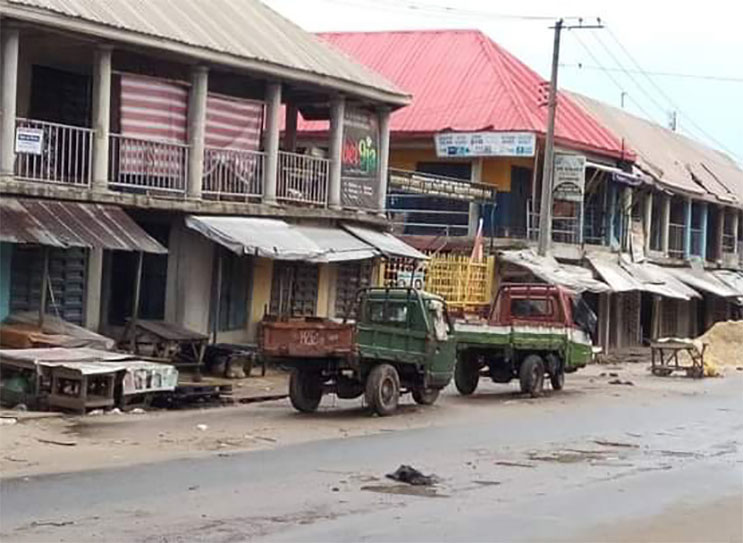
Also, working with partners to address the ongoing epidemic of CSM in the country, the Nigeria Centre for Disease Control (NCDC) will tomorrow, Tuesday April 25, in Abuja, host a one-day media orientation on meningitis outbreak and response with journalists/media groups to support the awareness and mobilization efforts of government.
The WHO and Pfizer, in separate statements yesterday, said immunization matters now more than ever because expanding access to immunization is crucial to achieving the Sustainable Development Goals (SDGs) and routine immunization is a building block of strong primary health care and universal health coverage—it provides a point of contact for health care at the beginning of life and offers every child the chance at a healthy life from the start.
They said immunization prevents illness, disability and death from vaccine-preventable diseases including cervical cancer, diphtheria, hepatitis B, measles, mumps, pertussis (whooping cough), pneumonia, polio, rotavirus diarrhoea, rubella and tetanus.
WHO and Pfizer said that vaccines have significantly reduced the threat of diseases that were once widespread and sometimes fatal and today, more people benefit from safe and efficacious vaccines than ever before – and the list of diseases that vaccines can help prevent continues to grow.
They said immunization currently averts an estimated two to three million deaths every year but an additional 1.5 million deaths could be avoided, if global vaccination coverage improves. They, however, said today, there are still 19.4 million unvaccinated and under-vaccinated children in the world.
Medical Director Pfizer, Kodjo Soroh, said: “As we mark World Immunisation Week/World Meningitis Day, let us be aware about the critical importance of immunisation bearing in mind that vaccination is a key strategy to containing Meningococcal meningitis, ensuring continued protection for the current and future generation while taking into consideration the current outbreak of Meningitis in the region.
“Immunization is widely recognized as one of the most successful and cost effective health interventions. Pfizer’s goal is to protect lives with innovative vaccines to fight serious diseases worldwide and make vaccination against potentially deadly diseases available.”
Director Corporate Affairs Pfizer, Margaret Olele, said: “We encourage individuals, families and communities to learn the signs and symptoms of meningitis, the importance of urgent treatment of the disease, and that prevention is available through vaccination against some forms of meningitis.
“Pfizer will continue to deliver on its commitments to colleagues and customers, protecting lives with innovative vaccines to fight serious diseases worldwide. “We are leveraging leading technology in vaccine design and conjugation in an effort to provide preventative solutions to these complex, difficult-to-treat bacterial pathogens.”
WIW – celebrated in the last week of April – aims to promote the use of vaccines to protect people of all ages against disease. Immunization saves millions of lives and is widely recognized as one of the world’s most successful and cost-effective health interventions.
2017 marks the halfway point in the Global Vaccine Action Plan (GVAP) – endorsed by 194 Member States of the World Health Assembly in May 2012 – which aims to prevent millions of deaths from vaccine-preventable diseases by 2020 through universal access to immunization.
Pfizer said it is dedicated to increasing access to immunizations in countries that carry the greatest proportion of global burden of pneumococcal disease, which can help prevent diseases and save lives.
In support of this commitment, and to help address the practical constraints experienced by health workers operating in many Gavi (the Vaccine Alliance) countries, Pfizer developed Prevenar 13 in the Multi-Dose Vial-MDV presentation (four doses per vial).
Soroh said this new presentation would help to significantly reduce storage requirements and shipping costs in communities with health systems that are still developing. In January 2017, Pfizer launched the new multi-dose vial- MDV which was prequalified in accordance with WHO’s ‘open container policy.’ With its ‘open container’ attributes, it allows for the fourth dose to be used for up to 28 days after the first dose in drawn and providing the recommended cold storage requirements have been met.
Soroh said to ensure the efficient use of the multi-dose vial; Pfizer is supporting Gavi countries with a refresher training of trainers program on a variety of immunization topics including the proper handling of multi dose vials with open container policy. Pfizer partnered with AMP Services, an organization dedicated to providing the tools to promote preventive medicine and public health worldwide, to execute the training of trainers’ sessions in 16 countries in 2017.
He said during the first four months of launch, fifteen countries have received the new MDV and nine of these have completed the training of trainers programs. These training sessions were well received by the national and regional trainers.
WIW aims to accelerate action to increase awareness and demand for immunization and improve vaccination delivery services so that people everywhere can be protected against deadly diseases.
In 2016, under the global slogan “Close the immunization gap”, the campaign focused on immunization for all throughout life. More than 180 countries, territories and areas marked the week with activities including vaccination campaigns, training workshops, round-table discussions and public information campaigns.





